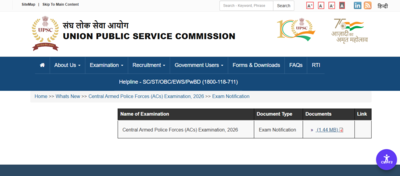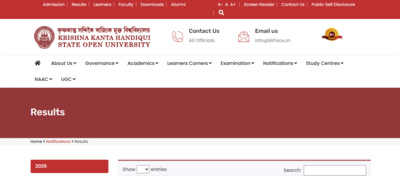As the healthcare sector in the United States continues to grow, fuelled by an aging population, medical innovation, and post-pandemic policy shifts, students are increasingly drawn to degrees that promise stable careers and societal impact. Among the most popular undergraduate options are the Bachelor of Science in Nursing (BSN) and the Bachelor of Science in Public Health (BSPH). Though both degrees contribute meaningfully to the health system, they do so from very different angles.This article explores the scope, opportunities, and career trajectories associated with each degree, and attempts to answer a pressing question: which one opens more doors in US healthcare?
Understanding the degrees
The BSN is a clinical degree designed to prepare students to become Registered Nurses (RNs), who provide direct patient care in hospitals, clinics, and other medical settings. It blends rigorous science coursework with hands-on clinical training and culminates in eligibility to take the NCLEX-RN licensing exam.In contrast, the BSPH is a non-clinical, interdisciplinary degree that focuses on the health of populations rather than individuals. It equips students with a foundational understanding of public health systems, disease prevention, health education, epidemiology, and policy. Graduates typically work in health departments, NGOs, research institutions, or community organisations, addressing issues like healthcare access, vaccination campaigns, health equity, and chronic disease prevention.
Career pathways and professional versatility
Graduates with a BSN enter a workforce with clear and immediate demand. After passing the licensure exam, they are eligible to work as Registered Nurses in a wide variety of settings like intensive care units, emergency rooms, schools, rehabilitation centres, and home healthcare. Many choose to specialise in areas like paediatric care, oncology, psychiatric nursing, or surgical nursing. As they gain experience or pursue further study, BSN holders can progress to roles such as Nurse Practitioner (NP), Nurse Educator, Nurse Anesthetist (CRNA), or Clinical Nurse Leader.The BSPH, by contrast, prepares students for a more diverse but less linear career path. Graduates often work behind the scenes in healthcare, managing programs, conducting health research, educating communities, or advising on policy. Common job titles include Health Educator, Community Health Worker, Public Health Analyst, Program Coordinator, or Epidemiology Assistant. The BSPH also serves as a gateway to advanced study in fields like Public Health (MPH), Health Administration (MHA), Epidemiology, or even Medicine—if supplemented with additional science prerequisites.In terms of versatility, the BSN offers more direct job options without requiring graduate education. The BSPH allows for broader exploration across sectors—including government, nonprofit, and tech—but often requires further specialisation to climb the career ladder.
Job market demand
The job market for nurses in the US is exceptionally strong. According to the US Bureau of Labor Statistics, more than 195,000 new RN openings are expected each year through the next decade. The combination of workforce shortages, retiring nurses, and expanding healthcare needs ensures that demand will remain high.Public health roles are also growing, particularly after the COVID-19 pandemic highlighted the importance of disease surveillance, community outreach, and health communication. While the number of jobs may be fewer compared to nursing, the demand is steady, especially in areas like epidemiology, health policy, and health informatics. However, many of these roles either prefer or require a master’s degree, meaning BSPH graduates may need to pursue further education sooner than their BSN counterparts.
Salary potential
In terms of earning power, BSN graduates generally start at a higher salary. New RNs can expect to earn between $65,000 and $75,000 annually, with significant potential for growth as they specialise or move into leadership positions. In high-demand areas or with shift differentials, some nurses earn well over $100,000 per year.BSPH graduates typically start with lower salaries, often in the $45,000 to $60,000 range depending on role and location. Those who pursue an MPH or MHA may see salaries rise significantly in policy, administrative, or consulting roles, but the early career earnings lag behind nursing.
Graduate school pathways
Both degrees offer strong foundations for graduate study. BSN graduates often continue to Master of Science in Nursing (MSN) or Doctor of Nursing Practice (DNP) programs, becoming Advanced Practice Registered Nurses (APRNs) or entering academic and leadership tracks.BSPH graduates frequently go on to pursue Master of Public Health (MPH), Master of Health Administration (MHA), or doctoral programs in epidemiology, biostatistics, or health policy. In some cases, students with a strong academic record and the right prerequisites may even transition to medical school, particularly if they use their public health background to shape a systems-oriented approach to patient care.While both degrees allow upward mobility, the BSN provides more immediate returns and pathways to specialised clinical practice. The BSPH, however, can position students to shape healthcare systems from a policy, research, or population-health perspective.
Which degree opens more doors?
Ultimately, the answer depends on how you define “doors.” If your goal is to enter the healthcare workforce quickly, earn a strong starting salary, and enjoy a wide variety of job options with or without further education, the BSN offers a clearer and broader path. It remains one of the most employable degrees in the US and serves as a launchpad for advanced clinical roles.On the other hand, if you’re passionate about tackling systemic issues, such as health disparities, environmental health risks, or disease outbreaks, the BSPH opens different kinds of doors. It may not offer the same immediate job security or salary as nursing, but it allows for impact at the population level and can lead to powerful careers in public health leadership, particularly with a graduate degree.The BSN and BSPH are both essential to the future of healthcare, but they serve distinct purposes. Nursing offers the chance to heal individuals. Public health offers the chance to protect entire communities. The choice between the two should come down to your interests, your long-term goals, and the kind of difference you hope to make in the world of health and medicine.TOI Education is on WhatsApp now. Follow us here.






